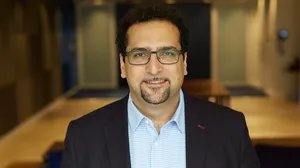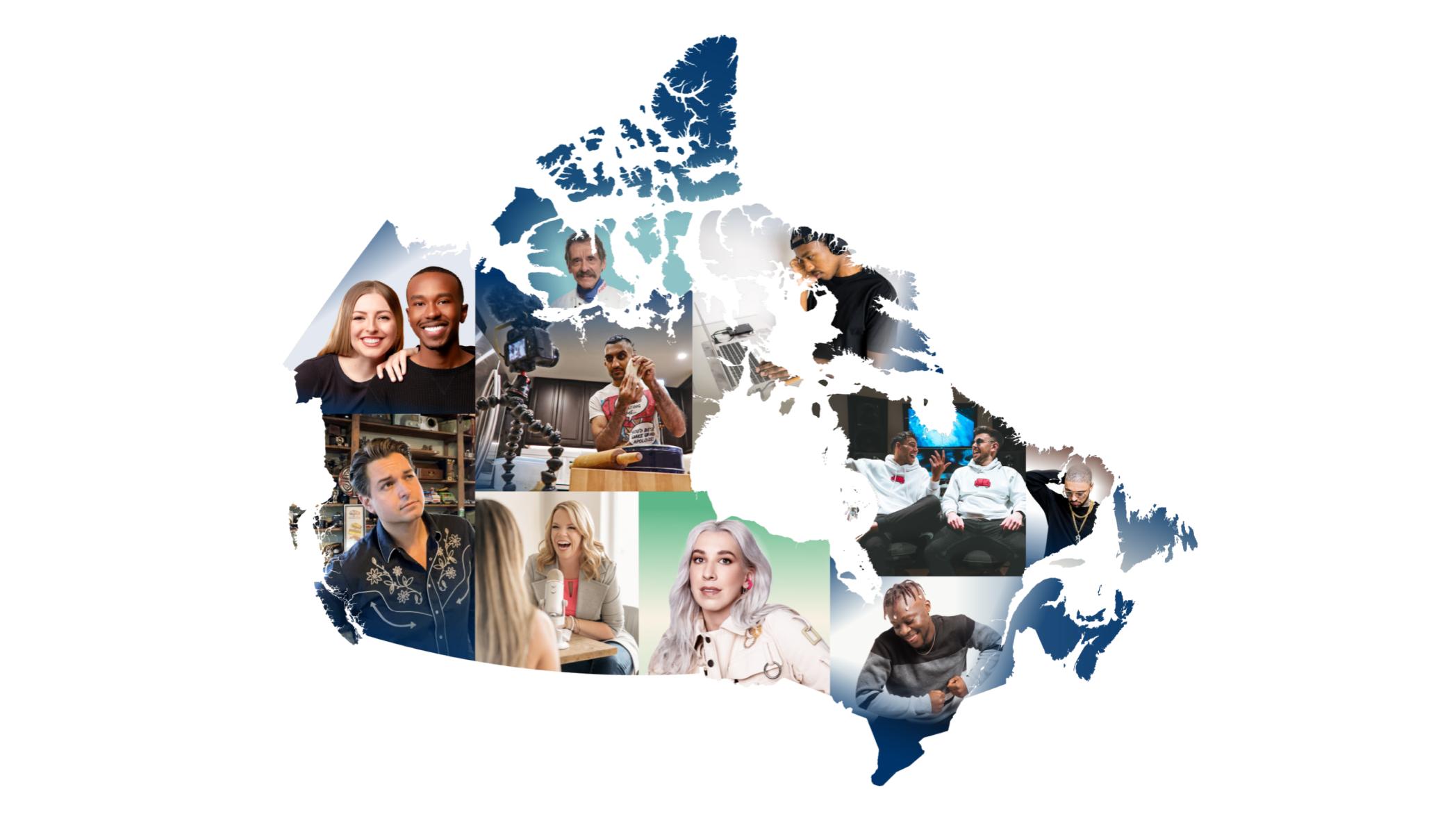Get back to what you love: helping Canadians learn why, where and when you can get vaccinated
Last month, I watched a YouTube video with my 10 year olds about the differences in vaccines and how they are made. Learning has always played a huge role in my life, but over the last year, I’ve turned online more than ever to find answers to the many uncertainties of the pandemic. Finding accurate information about COVID-19 symptoms, treatments, testing centres and now, vaccines, has been an important part of fighting the virus and keeping everyone safe. And as more people have access to the COVID-19 vaccine, we’re making it easier to learn why, when and where you can get immunized.
Supporting vaccine education on YouTube
Just like how I turned to YouTube to find reliable information about the difference between vaccines, many people around the world are doing the same. In fact, over 70% of Canadians say they turn to YouTube to gather information and knowledge (Watchtime Canada).
At the start of the pandemic last year, we invited Dr. Howard Njoo, Deputy Chief Public Health Officer of Canada, to answer the top questions about COVID-19 from some of Canada’s top YouTube creators. Now that a number of vaccines have been approved by health authorities around the world, including Health Canada, the focus has shifted to ensuring as many people as possible actually get vaccinated when it is offered.
That’s why we’ve teamed up with the Public Health Agency of Canada once again, this time to help answer Canada’s top questions about the vaccine with the help of Canadian YouTube creators. YouTube Creator Brandon Gonez sat down with Dr. Theresa Tam, Canada's Chief Public Health Officer, for a candid conversation and Dr. Njoo will return to speak with Montreal-based Creator Jay Machalani for an interview where together they will field questions from Jay’s community. The videos address a number of questions from ‘what differentiates an mRNA and viral-vector based COVID vaccine?’ to ‘can I travel after getting the COVID vaccine?’
Finding vaccination centres on Search and Maps
In Canada, this past month, search interest in "vaccine near me" increased by over 10x and reached a record high as more people across the country became eligible.
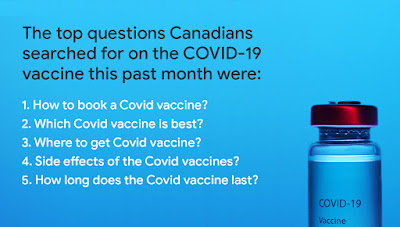
With vaccine rollout really starting to ramp up here, we’re once again working hard to provide Canadians with accurate information about vaccination facts and locations from coast to coast. Today, we’re introducing a feature which can help Canadians easily find vaccination sites near them, even faster in Search and Maps.
All you have to do is type “COVID-19 vaccine” in either Search or Maps and the nearest vaccination locations around you will pop up. We’ll include details like whether an appointment or referral is required or if access is limited to specific groups.
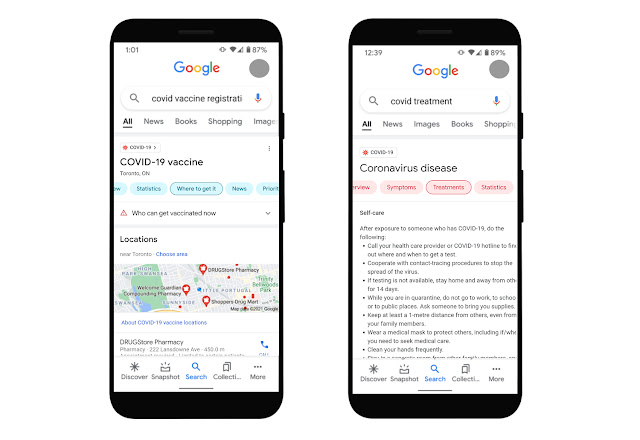
We’re working with partners like Montreal-based Clinia Health and other authoritative sources, such as government agencies and retail pharmacies, to gather vaccination location information and make it available to all.
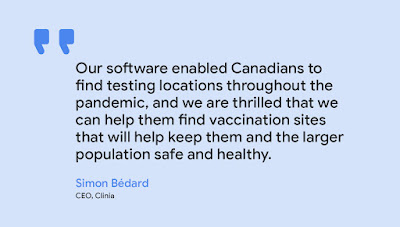
To help people stay up to date on the global vaccine roll out, we’ve also updated our features in Search to surface information on vaccine efficacy, side effects, priority groups, statistics and the latest COVID-19 related news. Simply type COVID-19 along with the province you are in to access this information. And, if you’re looking for a quick overview of locally relevant, timely and authoritative COVID-related updates, information panels continue to be a great resource for Canadians.

Getting back to what we love
Last year, we saw how digital tools played a critical role in helping us continue to learn, work and stay connected. These same tools will now help with COVID-19 recovery.
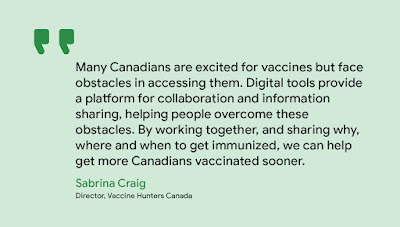
As we look towards the future, and prepare to reunite in shared spaces, rebuild a healthy society, and stimulate a thriving economy, there is much to look forward to. In the meantime, our goal is to help Canadians stay informed on what we can all do to get us there. That includes listening to the experts urging us to get vaccinated. Building confidence and trust in vaccines will be an essential part of getting us back to who and what we love.

